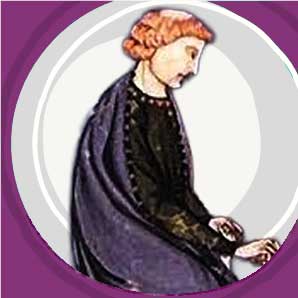Pérotin - Viderunt Omnes
Free Sheet music for Recorder Quartet
Download Score PDF
(8notes Premium)
About 'Viderunt Omnes'
Artist:
Composed:
c. 1198
Info:
LYRICS:
Viderunt omnes fines terræ
salutare Dei nostri.
Jubilate Deo, omnis terra.
Notum fecit Dominus salutare suum;
ante conspectum gentium
revelavit justitiam suam.
TRANSLATION:
All the ends of the earth have seen
the salvation of our God.
Rejoice in the Lord, all lands.
The Lord has made known his salvation;
in the sight of the nations
he has revealed his righteousness.
Viderunt omnes fines terræ
salutare Dei nostri.
Jubilate Deo, omnis terra.
Notum fecit Dominus salutare suum;
ante conspectum gentium
revelavit justitiam suam.
TRANSLATION:
All the ends of the earth have seen
the salvation of our God.
Rejoice in the Lord, all lands.
The Lord has made known his salvation;
in the sight of the nations
he has revealed his righteousness.
Tempo Marking:
Score Key:
F major (Sounding Pitch) ( View more F major Music for Recorder Quartet )
View more F major Music for Recorder Quartet )
Time Signature:
6/8 ( View more 6/8 Music)
View more 6/8 Music)
Duration:
13:50
Number of Pages:
21
Difficulty:
Intermediate Level: Recommended for Intermediate Level players
Instrument:
Style:
Tags:
Copyright:
© Copyright 2000-2025 Red Balloon Technology Ltd (8notes.com)
This file may be printed and performed freely, but should not be digitally copied, shared or reproduced without permission.
This file may be printed and performed freely, but should not be digitally copied, shared or reproduced without permission.
This piece is included in the following :




Pérotin Sheet Music

Recorder Quartet Sheet Music
DISCOVER

DISCOVER
A Brief History of the Recorder (and its grea…
Info
You might also like:
Viderunt Omnes by Perotin
Nkosi Sikelel' iAfrika (South African National Anthem) by Trad.
Waltz from Sleeping Beauty by Pyotr Ilyich Tchaikovsky
Third Movement Opening (Frere Jacques) from Symphony No.1 by Gustav Mahler
March from Occasional Oratorio by George Frideric Handel
Welcome Sweet Pleasure (Madrigal) by Thomas Weelkes
Nkosi Sikelel' iAfrika (South African National Anthem) by Trad.
Waltz from Sleeping Beauty by Pyotr Ilyich Tchaikovsky
Third Movement Opening (Frere Jacques) from Symphony No.1 by Gustav Mahler
March from Occasional Oratorio by George Frideric Handel
Welcome Sweet Pleasure (Madrigal) by Thomas Weelkes







